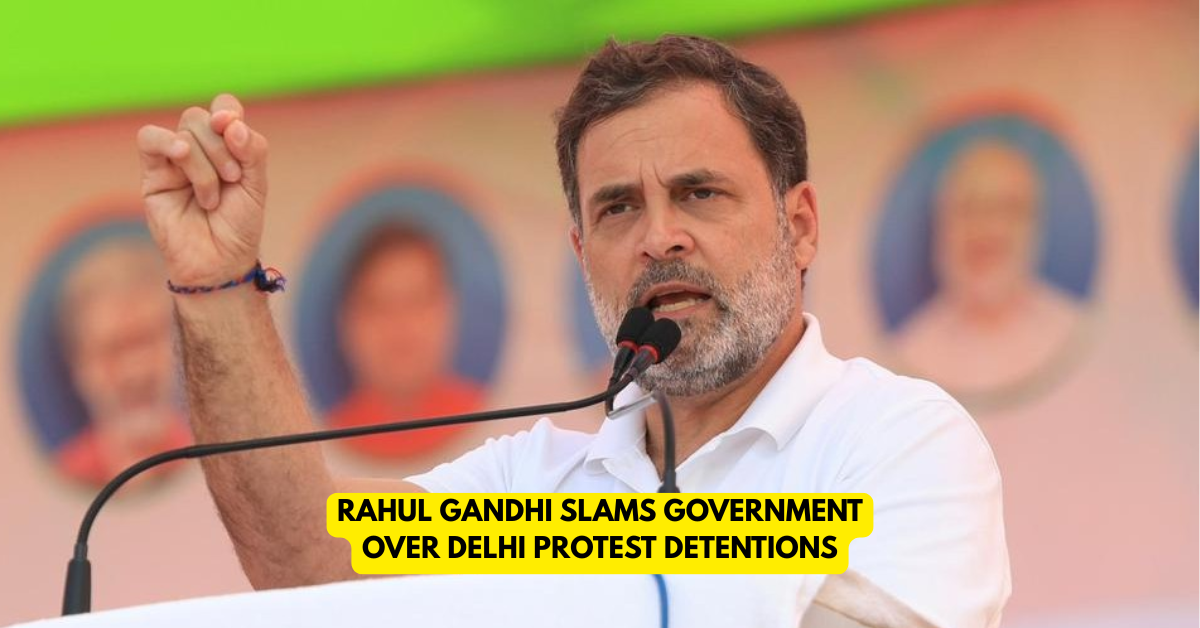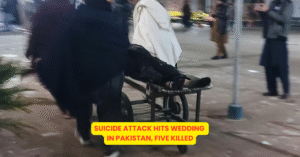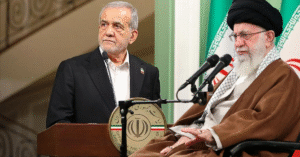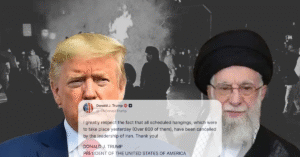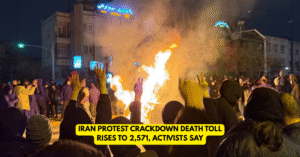New Delhi, November 10, 2025 — In a public outburst of indignation, Rahul Gandhi, Leader of the Opposition, sharply criticised the government today following the detention of dozens of peaceful protesters at India Gate, who had gathered to demand action on Delhi’s worsening air pollution. He asked a pointed question: Why are citizens seeking clean air being treated like criminals?
Voices of Protest and Frustration
The gathering included mothers with children, senior citizens, activists and local residents—many of whom carried placards reading “Right to breathe” and “Clean air now.” These individuals converged at India Gate on Sunday in the midst of an air-quality crisis, only to find themselves in the custody of the police. According to authorities, detention was carried out because the group did not have permission to protest at that location.
Gandhi, visibly upset, described the incident as symptomatic of a “government that has forgotten its basic duty” to protect citizens. In his remarks he highlighted two fundamental rights: the right to clean air and the right to peaceful protest, both guaranteed by the Constitution. “When citizens who have peacefully gathered to ask for breathable air are bundled into buses and detained — something is very wrong,” he stated.
Symbolism and Implications
For many Delhi residents, the incident underscored a larger feeling of being ignored—and in some cases penalised—for calling attention to a crisis that affects millions. The air quality system had shown readings in the ‘severe’ category, with indices above 400 in several places, yet the government response has been widely described as inadequate.
Gandhi accused the ruling party of projecting concern while deflecting responsibility, urging that “decisive action is needed now, not more arrests.”His remarks reflect mounting frustration across political lines about the government’s approach to environmental emergencies and civil liberties.
What’s Next?
The Delhi Police defended their detentions as “preventive” because the protest was held at a location not authorised under current regulations—namely, India Gate instead of the designated Jantar Mantar protest site. ThePrint But critics argue that such procedural arguments should not overshadow deeper questions about the relationship between citizens and the state.
The opposition has vowed to raise the issue in Parliament, seeking a parliamentary debate on pollution and protest rights. Meanwhile, local residents continue to breathe toxic air and wonder whether their voice—even in the streets—is still welcomed.
